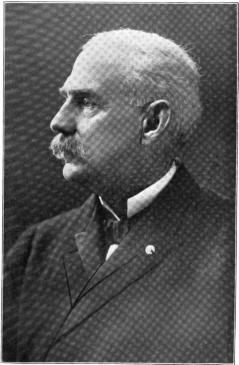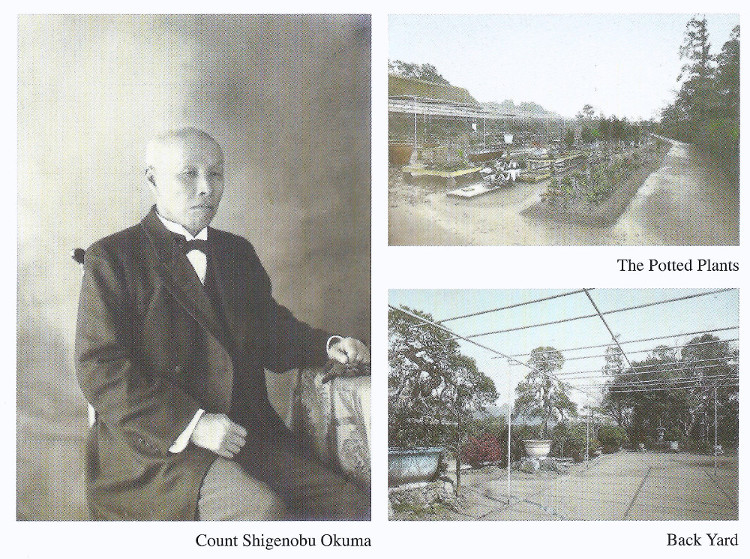
| Francis E. Clark (1851-1927) was an American clergyman born in Aylmer, Quebec, Canada. He graduated from Dartmouth College in 1873 and from Andover Theological Seminary in 1876, was ordained in the Congregational ministry, and wa pastor of the Williston Congregational church at Portland, Maine, from 1876 to 1883, and of the Phillips Congregational church, South Boston, Mass., from 1883 to 1887. On 2 February 1881 he founded, in Portland, the Young People's Society of Christian Endeavor, which, beginning as a small society in a single New England church, developed into a great interdenominational organization, which in 1908 had 70,761 societies and more than 3,500,000 members scattered throughout the United States, Canada, Great Britain, Australia, South Africa, India, Japan and China. After 1887, he devoted his time entirely to the extension of this work, and was president of the United Societies of Christian Endeavor and of the World's Christian Endeavor Union, and editor of the Christian Endeavor World (originally The Golden Rule). 1 |

|
"A Famous Japanese Statesman" by Francis E. Clark, D.D. in The Independent (1901):
"But there is quite as much of interest outside of Count Okuma's house as within. In fact his orchids, his dwarf pines and his ancient plum trees are famous throughout Japan. As we expressed a desire to see them, the Count summoned his head gardener and two or three attendants to escort us to his greenhouses, which opened out of the library in which we had been sitting. With evident pride he showed us his orchids from all countries... "But more interesting was the Japanese garden beyond the orchid house, with the miniature walks and diminutive rills and minute Fujiyama to climb, crowned on top with an old shrine, which I understand the Count keeps for its beauty and as a relic of past times, rather than as an object of worship. "Following the gardener's lead we came to the chrysanthemum garden, which is said to be the finest in all Japan; but in February of course it was without a blossom. Near by, however, was a still more interesting department of floriculture -- or arboriculture, to speak more exactly -- in the house [sic] devoted to dwarf pines, in which the Count also revels. Here was a pine tree growing in an ordinary flower pot which we were assured was two hundred years old, and here was a companion piece that had seen three hundred summers and winters. It took some faith, not to say credulity, to believe these statements, but they were backed by such indisputable authority, and are, moreover, such common objects in Japan, that our unbelief soon gave way to amazement that a tree could be so small for its years; for there were some that had fully attained their majority and were quite twenty-one years old in little vases scarcely larger than thimbles. "Next to his dwarf pine house was the Count's plumery, as it might be called, an open shed devoted to dwarf plum trees, trained in every possible fantastic shape and just putting forth their first sweet and fragrant blossoms. These, too, were among the ancients and honorables. Several of them, tho still living in comparatively small pots, were contemporaries of the Pilgrim Fathers, being born in Japan about the time that William [94] Brewster and Miles Standish were born in England. "A perfect paradise of beauty is this lovely garden of Count Okuma's, in which the visitor might longer for hours and not exhaust its diminutive beauties. No vast and towering trees, no stately hedges and long vistas of evergreen beauty, but everything minute, even microscopic, but elegant and dainty to the last degree. Old stone lanterns, placed here and there, remind us of the feudal days of Japan, while the modern mansion encased in this ancient Japanese setting so combined the ancient and modern that it seemed not incongruous to find a European villa set down in a garden of Japanese greenery. "The whole place was characteristic of its noble master. He combines the ancient and the modern in his own person. Retaining the best of old Japan, he has united it with the newest ideas of young America. Not despising the beauties of the past, he recognizes the value of the present, and the brighter glories of modern civilization in the future. Wearing Japanese clothes, they did not seem out of place in a European drawing-room." 2 |

|
1
"Francis Edward Clark,"
http://en.wikipedia.org/wiki/Francis_Edward_Clark. |